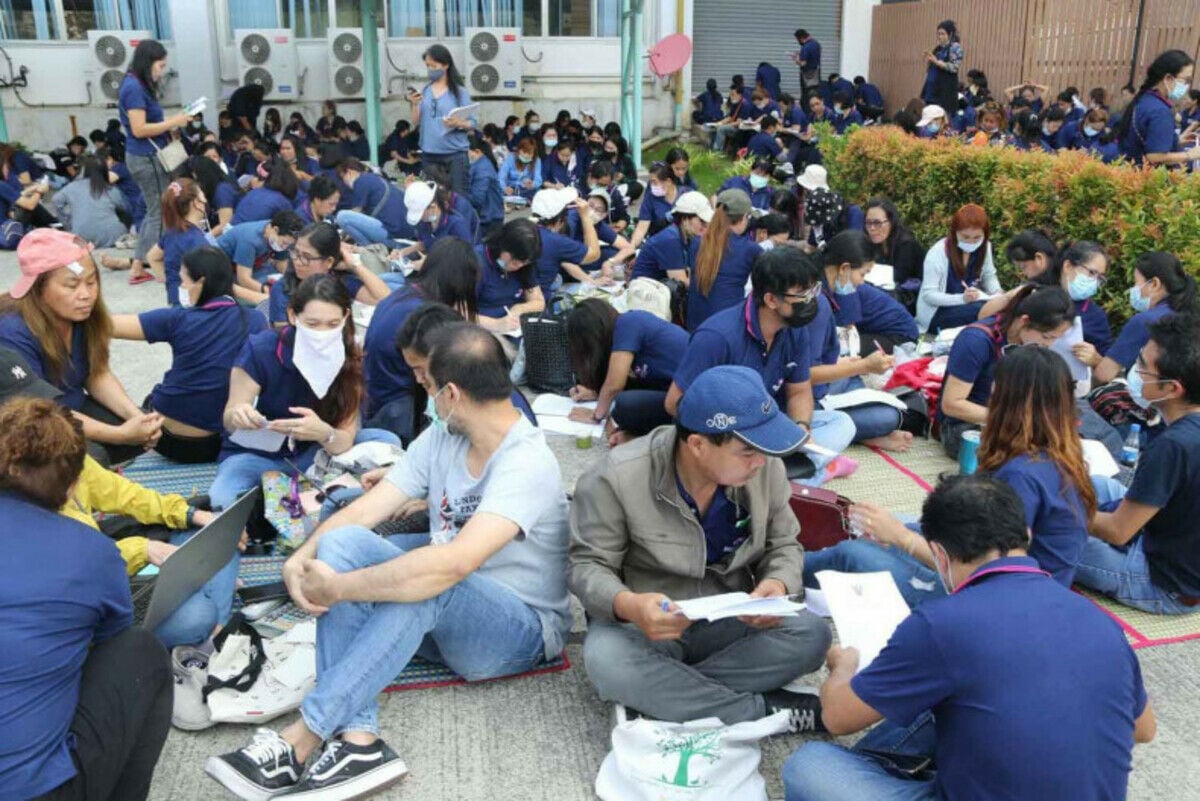Thai factory closures, a victim of Chinese imports surge

Chinese electric vehicle (EV) manufacturer BYD recently opened its inaugural Southeast Asian factory in Thailand, garnering considerable attention and praise for the country’s industrial foresight. However, this development also adversely affected long-established Japanese automakers, leading to a ripple effect across numerous Thai factories.
A crucial development went relatively unnoticed as Suzuki Motor announced the closure of its Thai factory, with a capacity an annual output capacity of up to 60,000 cars.
This decision by the Japanese automaker reflects a broader trend affecting Southeast Asia’s second-largest economy. Thailand is grappling with an influx of inexpensive Chinese imports and a decline in industrial competitiveness, exacerbated by rising energy costs and an ageing workforce.
Over the past year, nearly 2,000 factories have shut down in Thailand, severely impacting the manufacturing sector, which contributes almost 25% of the nation’s gross domestic product (GDP). This downturn is weighing heavily on the 18 trillion baht economy and affecting workers.
A loyal employee of nearly 20 years at the VMC Safety Glass factory in Samut Prakan province, 54 year old Chanpen inspected automotive and building products. In April, she was unexpectedly informed about the factory’s closure, leaving her jobless. As the sole breadwinner for the family, this closure marked a dark period of uncertainty for her future.
“I don’t have any savings. I have hundreds of thousands of baht of debt… I’m old, where will I go to work? Who will hire me?”
Declined to comment
A director at VMC Safety Glass, Monchai Praepriwngam, declined to comment on the reasons behind the factory’s closure.
The struggles within the manufacturing sector pose a significant challenge to Prime Minister Srettha Thavisin, who took office last year. He pledged to boost average annual GDP growth to 5% over his four-year term, up from 1.73% over the past decade. The Bangkok-born PM highlighted the issues surrounding the industrial sector in a Parliament meeting last week.
“The industrial sector has slumped and capacity utilisation has fallen below 60%… It is clear that the industry needs to adapt.”
Chairman of the National Economic and Social Development Council, Supavud Saicheua echoed these concerns, stating that Thailand’s long-standing manufacturing-driven economic model is failing, before highlighting the need for a shift to focus on products not exported by China, instead to strengthen its agricultural sector.
“The Chinese are now trying to export left, right and centre. Those cheap imports are causing trouble… You have to change…no ifs or buts.”
The Thai Department of Industrial Works reported a 40% increase in factory closures between July 2023 and June 2024 compared to the previous year. Consequently, job losses surged by 80%, leaving over 51,500 workers unemployed.
Giants falling
Kiatnakin Phatra Bank’s research division noted a slowdown in new factory openings, with large factories closing and smaller ones taking their place. This trend has impacted key economic sectors, including the automobile industry.
Smaller manufacturers are also struggling with rising production costs due to increased energy prices and relatively high wages, according to Sangchai Theerakulwanich, chairman of the Federation of Thai SMEs.
“We compete with multinational businesses…Manufacturers unable to adapt quickly had to close business or change to make something else.”
Starting this month, Thailand began collecting a 7% value-added tax on inexpensive imported goods priced below 1,500 Thai baht, primarily from China. However, these products remain exempt from customs duties.
The Vice Chairman of the Federation of Thai Industries, Nava Chantanasurakon, urged the government to implement measures to prevent tariff evasion amid the US-China trade war and high barriers for some Chinese goods in other regions.
Currently, Thailand’s economy is projected to grow by only about 2.5% this year, contributing to widespread dissatisfaction with Prime Minister Srettha’s performance.
Cash handout scheme
The Thai premier defended his party’s controversial and delayed 500 billion-baht handout scheme, which has faced substantial criticism, including from the central bank. He labelled it as a “strong medicine to revive the economy.”
Without a steady income, Chanpen is awaiting the 10,000 baht handout that 50 million Thais are eligible to receive under the plan, reported Bangkok Post.
“The economy was bad during the previous government…But even after the new government has come, the economy is still as bad as before.”
Latest Thailand News
Follow The Thaiger on Google News:


























